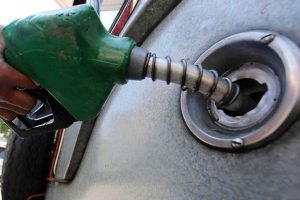DUBAI — Iran’s Oil Minister Javad Owji on Monday confirmed that a nationwide disruption to petrol stations was caused by a cyberattack.
A hacking group that Iran accuses of having links to Israel claimed it carried out the attack which disrupted services at petrol stations across the country on Monday, Iranian state TV and Israeli local media reported.
Owji had earlier told Iranian state TV that services had been disrupted at about 70% of Iran’s petrol stations and that outside interference was a possible cause. He later said 1,650 petrol stations were operational. The ministry supervises 3,800 petrol stations.
Iran’s state TV news said a group called Gonjeshke Darande or “Predatory Sparrow” had claimed it was behind the disruption. Israeli local media outlets also reported the claim.
“This cyberattack was carried out in a controlled manner to avoid potential damage to emergency services,” the group said in a statement on Telegram.
The digital strike was “in response to the aggression of the Islamic Republic and its proxies in the region”, it added.
Asked about the cyber attacks, Israeli government spokesperson Tal Heinrich told a press briefing on Monday: “We have nothing to say about Iran’s claims.”
Iran’s civil defense agency, which is responsible for cybersecurity, said it was still considering all possible causes for the disruptions as it investigated.
Iranian state media added that the hacker group had in the past claimed cyberattacks against Iranian petrol stations, rail networks and steel factories.
Last year, Predatory Sparrow posted video showing an explosion inside one of those steel factories which it said was caused by a hack.
In an interview with Reuters five days after the Oct. 7 attack in Israel, a representative of the group said they targeted Iran for its support of Hamas, adding they were preparing for future attacks and “keeping some ‘buttons’ on hold.”
They added “in the event that we detect any kind offensive action in any realm from any proxy against our country we will attack and cause permanent and unimaginable damage to any target we see fit via Air, Sea, Land and Cyber,” the group said at the time. “When we will start, the gates of hell will open.”
A major cyberattack in Iran in 2021 also disrupted the sale of fuel, causing long queues at stations across the country where pump prices are heavily subsidized. Iran had said Israel and the United States were the likely culprits behind those attacks.
Monday’s disruption began early and was especially acute in Tehran, forcing many petrol stations to operate manually, Iranian media reported.
Reza Navar, a spokesperson for Iran’s petrol stations association told the semi-official Fars news agency that there was no fuel supply shortage but called on drivers to not go to petrol stations.
“A software problem with the fuel system has been confirmed in some stations across the country and experts are currently fixing the issue,” Navar said.
The oil ministry earlier told state TV that the disruption was not linked to plans to increase the price of fuel, a policy that caused widespread protests in 2019 and led to violent repression.
State TV said petrol stations were seeking to provide fuel manually adding that over 50% of the stations were providing services and trials to get more back online were underway.
Israel’s Cyber Unit on Monday said Iran and Hezbollah were behind an attempted cyberattack on a hospital in northern Israel about three weeks ago. It said the attack was thwarted but hackers were able to retrieve “some of the sensitive information stored in the hospital’s information systems”. — Reuters

